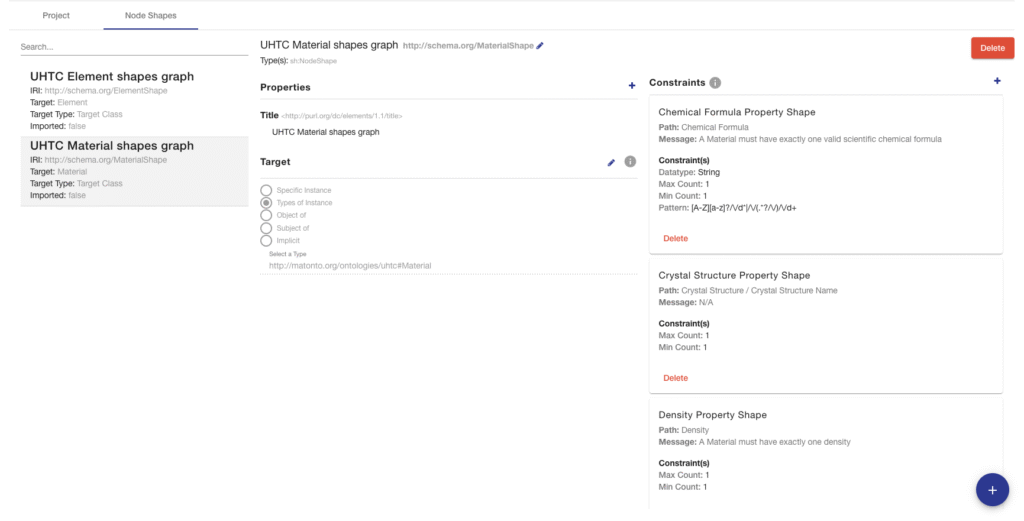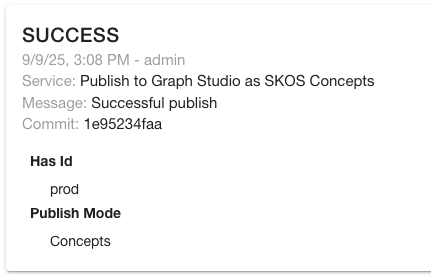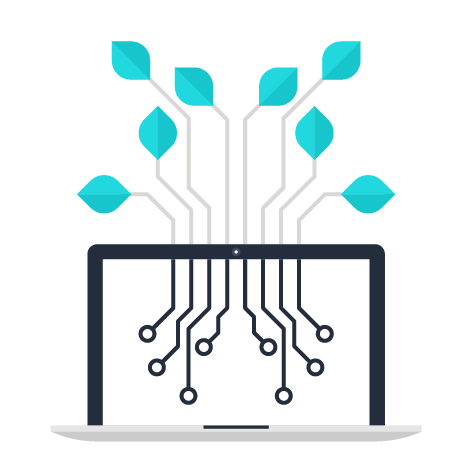Released on September 12th, 2025, version 4.2 continues our commitment to full operationalization of semantic artifacts, powering dynamic knowledge graph solutions, and solving your critical data harmonization needs. This minor release focuses on advancing our specification-compliant editing capabilities, strengthening containerized deployments, and enhancing enterprise-grade audit functionality along with various enhancements and improvements. Check out the details below!
Brand New Specification-Compliant Shapes Graph Editing

Data validation and constraint management are fundamental to maintaining high-quality knowledge graphs, and SHACL (Shapes Constraint Language) serves as the W3C standard for defining these critical validation rules. Mobi 4.2 introduces a brand new specification-compliant in-app editing experience for Shapes Graphs directly within our Shapes Editor, revolutionizing how you create, modify, and manage your validation constraints.
This enhanced editing experience provides an intuitive interface for working with SHACL shapes while ensuring full compliance with W3C specifications. You can now seamlessly create complex validation rules, define property constraints, and establish node shapes without leaving the platform. The new editor includes intelligent auto-completion, real-time validation feedback, and visual representations of your constraint hierarchies, making SHACL development more accessible than ever before.
These improvements significantly enhance your ability to maintain data quality and consistency across your semantic solutions, all while working within a user-friendly interface that abstracts away the complexity of raw SHACL syntax without sacrificing the power and flexibility of the specification.
Enhanced Docker Container Support
Containerized deployments have become the backbone of modern enterprise infrastructure, and Mobi 4.2 delivers significant improvements to our Docker container implementation. We’ve restructured our container architecture to provide better support for data persistence and seamless upgrades, addressing key operational concerns for production deployments.
The improved Docker container now includes enhanced volume management for persistent data storage, ensuring your valuable semantic artifacts, user configurations, and system state are maintained across container restarts and updates. Additionally, we’ve streamlined the upgrade process with improved migration scripts and compatibility checks, reducing downtime and minimizing the risk of data loss during version transitions.
These enhancements make it easier than ever to deploy Mobi in containerized environments, whether you’re running on-premises Kubernetes clusters, cloud-native platforms, or hybrid infrastructures. The improved container design supports both development and production use cases with greater reliability and operational simplicity.
Enterprise Audit Capabilities with Request Data Storage

Compliance and auditability are paramount in enterprise semantic data management, and Mobi 4.2 significantly expands our Enterprise audit capabilities within the Publish module. The enhanced system now stores submitted request data alongside the associated provenance data, providing comprehensive audit trails for all publishing activities.
This full auditing support captures not only what data was published and when, but also the complete context of each publishing request, including user credentials, request parameters, target systems, and execution results. The integrated provenance tracking ensures you have a complete chain of custody for all semantic artifacts as they move through your enterprise systems.
These audit capabilities are essential for regulatory compliance, security monitoring, and operational transparency. Whether you’re tracking changes for SOX compliance, conducting security audits, or investigating system issues, the enhanced audit trail provides the detailed information needed to maintain accountability and trust in your semantic data operations.
Ready to Get Started?
Contact us today to learn more about Mobi 4.2 and how it can transform your approach to semantic data management.







